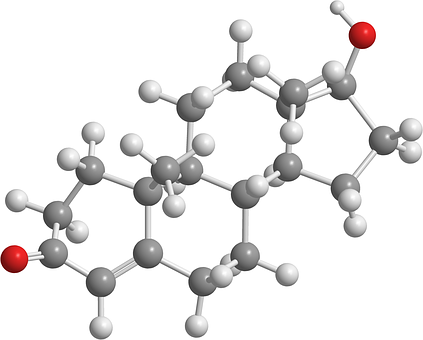Gleaning from the recent statistics of the COVID-19 casualties, we’ll see that men are hit on a much harder scale than women. As a matter of fact, a study was headed and published by Frontiers in Public Health, according to their report men are dying two times the rate of women, irrespective of age, after contracting the novel coronavirus. Now, here is our million-dollar question for this:
Why is this even possible? What could be the underlying reason for this? Last month, June of 2020, the “Andrology” published their analysis of these studies which led them to propose that the male sex hormone, testosterone, could be the underlying reason for the problem.
Below are some of the theories from TRT Sydney experts that could explain the reason why testosterone is behind the high mortality rate of men with COVID-19.

Testosterone May Induce Protein Production that Promote Virus Activity
Several types of research are proving that testosterone is capable of regulating the production and activity of ACE2. This is a type of protein receptor that is responsible for the ingress of a virus into cells, and working alongside this is the TMPRSS2, a co-receptor protein that is responsible for activating the virus.
Studies on these protein receptors from years ago show that they worked the same way in facilitating the SARS-CoV-1 virus into cells. In line with this, the current studies being done with COVID-19 research are giving positive indications to scientists that these same proteins function similarly concerning the SARS-CoV-2.
Testosterone Levels Plummet When They Are Ill
One of the reasons that can bring about a sudden, drastic drop in testosterone levels of men is when they fall seriously ill. The male human body needs to have normal levels of testosterone because this will help in protecting the normal functioning of cells that are lining the blood vessels. It also keeps the body from having a defective immune response.
Having a reduced amount of testosterone levels due to a serious illness could impair the male human body from clearing itself from virus infections. So much so that when they get infected with the novel coronavirus, there is a good chance that their overall health would spiral down.
The Male Tendency to Developing a Belly Fat is Putting Them in Harm’s Way of Inflammation
Men’s bodies have a natural tendency to develop obesity in the abdominal area against their adipose tissue and one of the underlying reasons for which is the overproduction of androgenic hormones, particularly testosterone. We are more familiar with this as the belly fat, a kind of tissue that is generating inflammatory cytokines. The purpose of these small proteins is mainly for cell signaling.
Besides, this also explains why there are higher incidences of cardiovascular diseases in men as well as diabetes, metabolic syndrome, and respiratory diseases such as bronchitis, asthma, emphysema, and chronic obstructive pulmonary disease.
Men who happen to have metabolic issues or preexisting obesity concerns, when they contract this type of virus in their lungs are more vulnerable since they already have pre-existing peripheral inflammation.
Too Much and Too Little Testosterone — Can They Both Increase Your Risk?
This is how the world of hormones work, it can be a bit confusing and complicated too. Different doses of these hormones are likely to induce different effects on the human body, at different receptor sites. They can also create different impacts on different endocrine contexts.
For example, one of the forms of estrogen is estradiol, which is responsible for bone growth during the puberty period which usually occurs when it binds itself to at least one kind of higher concentration receptor.
This will induce the epiphyses, or the long bone’s end-most part, to fuse – signaling the end of the bone growth process. This will occur when it takes on a binding process to a receptor which may be active only when in higher concentrations.
Andrology theory studies may come a bit challenging and somehow difficult to reconcile, the impact and influence of testosterone as a hormone during an illness could be different and in many different contexts.




 who specializes in male reproduction. Following diagnosis, you and your doctor can determine the best course of action for your low testosterone depending on your desired outcomes, which may include sexual or reproductive function.
who specializes in male reproduction. Following diagnosis, you and your doctor can determine the best course of action for your low testosterone depending on your desired outcomes, which may include sexual or reproductive function.